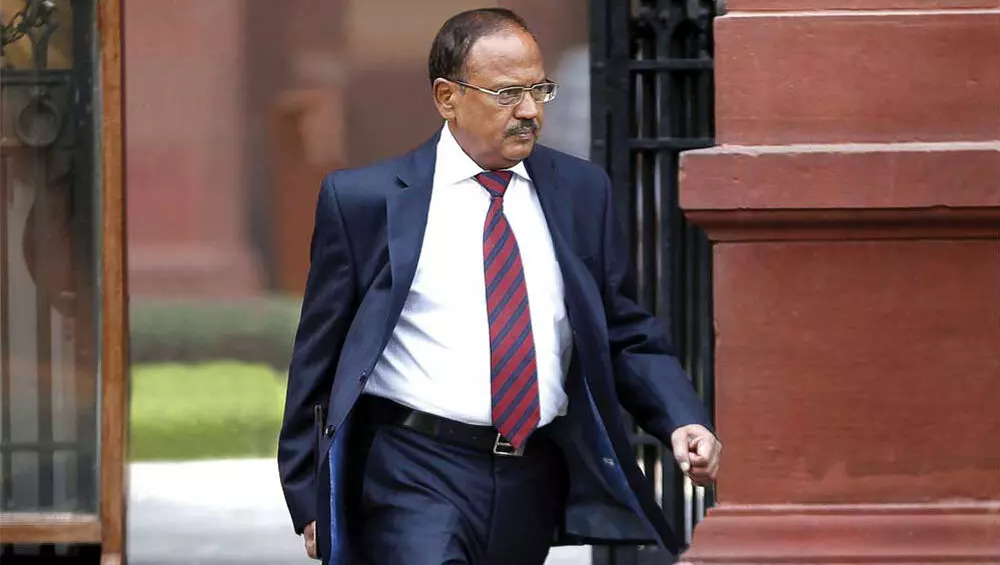Treading a fine line
Ajit Doval’s high-stake visits to Russia and the US are reflective of India’s consistent efforts to balance ties with the rival superpowers; writes Vinay Kumar

India’s security and strategic interests on important global platforms have been in focus over the last month as National Security Adviser (NSA) Ajit Doval made hectic trips to the US and Russia.
Doval headed to the United States in late January and held a meeting with his US counterpart, Jake Sullivan. Earlier this month, he paid a visit to Russia where he joined top security officials from China, Iran and a number of Central Asian states to participate in a multilateral meeting on Afghanistan.
NSA’s recent visits to the world’s most important political capitals underlined the importance that India attaches to striking a delicate balance in its relations with both the countries at a time when global security and geopolitical environment appear uncertain. His visits to Washington DC and Moscow show India’s priorities in forging vital initiatives.
In Washington, the two NSAs agreed upon a number of important arrangements under the Initiative on Critical and Emerging Technologies (iCET) which was launched in 2022 and has the potential to have a transformative impact on India’s partnership with the US in areas like military, science & technology and key high-tech fields.
Considering the fact that Russia and the US have been at loggerheads, more so in the wake of the Ukraine War which has completed one year, Doval’s trip assumes significance. The icing on the cake was that the NSA also had one-on-one meeting with Russian President Vladimir Putin, a rare instance of President Putin meeting a top-ranking official from India. His meeting with Doval also pointed towards the continued importance which both sides accord to each other in taking forward their engagement. At a time when Russia continues to face confrontation with the West over the war in Ukraine, Doval’s meeting with President Putin carries a special context. India, led by Prime Minister Narendra Modi, has lent its voice to the peace-making efforts in Ukraine, stressing that today’s era is not an era of war. In his telephonic conversation with President Putin last September, PM Modi voiced his concern, stressing upon the need to take the path of diplomacy and dialogue, a stance often reiterated at various global forums at the highest level.
While India, having to put up with the Chinese threat, has warmed up to the US, it has also taken pains to maintain its relationship with Russia; though Moscow, facing increased isolation in the global community over the war in Ukraine, does not appear to be too pleased with the initiatives surrounding the Indo-Pacific, with the active involvement of the US and further deepening of strategic defence and technological ties between New Delhi and Washington. India has also stressed upon furthering its cooperation with Russia in sectors such as trade, energy and defence.
With the US, under the iCET initiative, India is poised to forge closer cooperation in the areas of Artificial Intelligence (AI), 6G, quantum technologies etc. Other focus areas include defence innovation, technology cooperation and semiconductor supply chains. Doval stressed upon the need to pin down the deliverables in these key focus areas to ensure that no slip-ups or laxity creeps in. Co-production and technology development have left much to be desired, though India is now billed as a major defence partner of the US
The NSA’s discussions in Washington DC and Moscow also point towards India’s keen desire to safeguard its key interests, make advances in high-tech areas and, at the same time, be ready to hold on to its independent position and avoid landing in confrontationist stance, so far as the two rival powers are concerned, as new dynamics is emerging rather rapidly in the geopolitical arena.
Views expressed are personal



